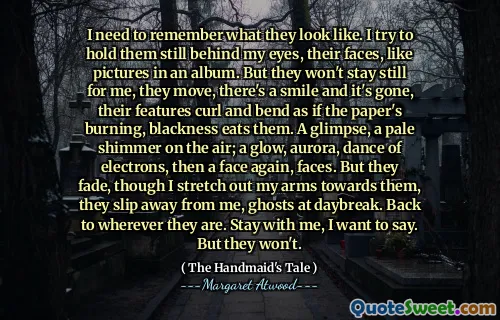Moira had power now, she'd been set loose, she'd set herself loose. She was now a loose woman.I think we found this frightening.Moira was like an elevator with open sides. She made us dizzy. Already we were losing the taste for freedom, already we were finding these walls secure. In the upper reaches of the atmosphere you'd come apart, you'd vaporize, there would be no pressure holding you together.
In "The Handmaid's Tale," Moira's newfound freedom signifies both empowerment and a source of fear for those around her. She has broken away from societal constraints, embodying a spirit of defiance that challenges the established order. However, this liberation evokes discomfort among her peers, as they begin to appreciate the security provided by their oppressive environment, finding solace in the very walls that confine them.
The metaphor of Moira as an open-sided elevator illustrates the danger of radical freedom. Her audacity leaves others feeling uneasy, as they contemplate the risks associated with being truly free. The imagery of disintegration in the atmospheric upper reaches serves as a warning: without the pressure of societal structures, individuals can lose their sense of self, suggesting that sometimes familiarity and control can feel safer than the chaos of independence.






